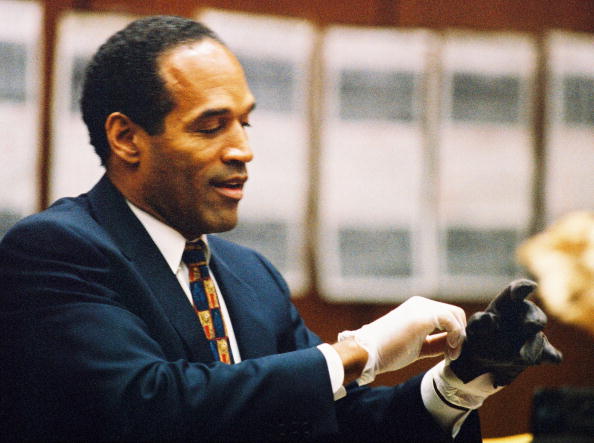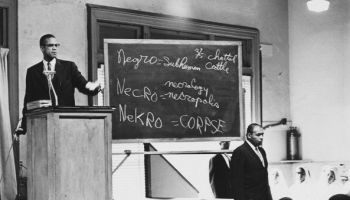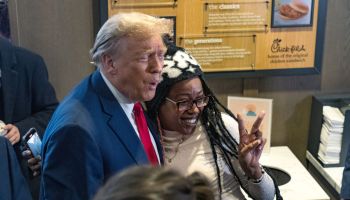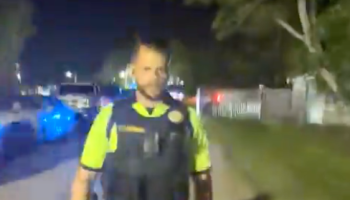In all of the euphoria over Barack Obama’s election as the first African-American President, black voters have been cast as a vital part of the electorate that made his victory possible. There has been another story developing in the state of California, as black voters in the state, according to exit polls, voted 2-1 in favor of Proposition 8, a constitutional amendment which bans same-sex marriage reversing ruling made only months ago by the California Supreme Court in favor of same-sex marriage.
Black support for Proposition 8 highlights one of the many fault-lines in the alliance that swept Barack Obama into the White House. The rhetoric is being amped up as some are essentially blaming black voters-often thought as critical to a liberal or progressive voting bloc-for the revoking of same-sex marriage privileges. The rift between traditional black voters and white progressives comes at a critical juncture, as President-Elect Obama seeks the political footing for his agenda. Without a viable and visible progressive political bloc, Obama will have little choice but to govern from the political center.
Though black voters have historically been some of the most consistent members of a liberal voting bloc, they tend to be more conservative on social issues such as same-sex marriage. This was something that strategist Karl Rove understood as the Bush campaign used the shiny-ball that was same-sex marriage in the 2004 presidential to garner just enough support among black voters in a state like Ohio to turn the tide in favor of the incumbent. It was a lesson that those who sought to defeat Proposition 8 should have studied.
It is clear though that organizers did little outreach into black communities assuming that with a black presidential candidate that was supportive of same-sex marriage, (though more tepidly supportive of Proposition 8 during the campaign cycle), that black voters would fall in line. But black views on same sex-marriage are more complicated; simply reading black voters as inherently homophobic misses the complexity of an issue that, in black communities, is often tied to the absence of black men as husbands and fathers. Understood in that context, same-sex marriage goes against the belief of many within black communities that black survival is hopelessly tied to traditional marriage patterns. That said, the Black Clergy needs to be accountable for hateful rhetoric directed towards gays, lesbians and transgendered citizens (including a good many in their congregations) and for willful fear-mongering.
Ultimately, black voters are simply challenged by the realities of their everyday concerns and support of issues like same-sex marriage seem more like a diversion. This is a point that writer and activist Jasmyne A. Cannick recently made in the Los Angeles Times where she suggests that, “The first problem with Proposition 8 was the issue of marriage itself. The white gay community never successfully communicated to blacks why it should matter to us above everything else,” adding that, “the right to marry does nothing to address the problems faced by both black gays and black straights. Does someone who is homeless or suffering from HIV but has no healthcare, or newly out of prison and unemployed, really benefit from the right to marry someone of the same sex?” Cannick offers a compelling argument here, but the very possibilities that Obama’s election created need to force those of us on both sides of this debate to think more creatively and yes, more progressively, about the challenges that we face.
For black communities we need to get past our romantic ties to the traditional nuclear family and the thought that we can only raise productive children if both a man and women are present in a household. True, part of our investment in that familial model is the product of the stigma that had been historically attached to our cultural practices and indeed Daniel Patrick Moynihan’s famous critique of the black family suggested that we were doomed to stand outside of the American mainstream until we assumed a more traditional (less matriarchal) family structure. But too often black communities turn a blind-eye to the violence and upheaval some of our most damaged men bring to our households, simply because there is a man in the house. More to the point, Obama himself is evidence of models that don’t privilege the presence of father-figure per se, but rather the presence of many adults engaged in the lives of our children. Quite frankly, black children raised in a gay or lesbian household with engaged adult figures are likely better off than those raised in single-parent households or in heterosexual households where neither parent is up to the challenge of parenting. The point here is that we need to be more sophisticated about how family structures function.
On the other side of the spectrum, those white progressives who sought to defeat Proposition 8 would do well to be a little more self-critical of the privilege that undergirds some of their politics. Debates about same-sex marriage, however important they are, are debates that only a privileged few can really be engaged in. The struggle for them is to better align these debates with the material realities of the working poor and the working class, communities for which the time to protest anything is at a premium. University of Chicago political scientist Cathy Cohen has made such a point wondering aloud, for example, how Queer activists might engage the lives of women of color, who though heterosexual, have made sexual choices that “are not perceived as normal, moral, or worthy of state support?” It is incumbent upon white progressives to get better at finding common ground with black communities, beyond the dated liberal agenda that brought us together in the first place.
Barack Obama’s election, to cite James Brown, was a signal that it is a new day. It’s about time that our political organizing begins to reflect that reality.
















